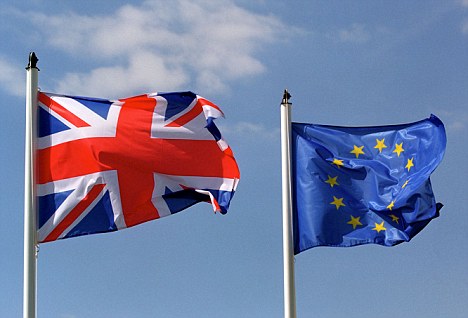
File photo
Britain on Tuesday said it would push back its implementation of full post-Brexit borders checks on goods from the European Union, as the pandemic, red tape and new immigration rules fuel supply problems.
Plans to introduce full controls in areas such as the import of food and animal products had been due from next month but would now start from January next year under a "pragmatic new timetable", Downing Street said.
Britain will still introduce full customs declarations and controls on January 1, 2022, as planned.
Certification and physical checks on food and animal goods designed to protect against diseases, pests and contaminants -- due to be introduced on January 1 -- will now be introduced in July 2022.
Requirements for Safety and Security declarations will be also be pushed back to July.
"We want businesses to focus on their recovery from the pandemic rather than have to deal with new requirements at the border, which is why we've set out a pragmatic new timetable for introducing full border controls," said minister David Frost.
"Businesses will now have more time to prepare for these controls which will be phased in throughout 2022.
"We remain on track to deliver new systems, infrastructure and resourcing needed for these controls," he added.
The pandemic and the effects of leaving the EU single market have left Britain short of truck drivers, causing supply problems, particularly in the food and drink sector.
The UK has similarly postponed the full implementation of post-Brexit rules governing trade from mainland Great Britain (England, Scotland, Wales) to Northern Ireland.
London is in talks with Brussels about how to put into practice the Northern Ireland Protocol, which is designed to prevent unchecked goods heading into the EU single market via the UK's only land border with the EU to Ireland.
- Christmas pressure -
Fears are growing that supply side problems will hit Christmas in shops and supermarkets, particularly if tougher checks are introduced at busy Channel ports in October.
"Additional time could help to relieve pressure on supply chains ahead of the traditionally busy Christmas period for retailers, especially given current headwinds," said Sean McGuire, Europe director at employers group the CBI.
"But the impact will be fleeting unless that extra time delivers progress on the challenges firms are facing.
"That includes both sides giving fresh consideration to business' suggestion for a bespoke veterinary agreement, which could avoid the majority of checks and reflect the unique nature of trade between the UK and the EU.
"And where supply bottlenecks are caused by labour shortages, the UK should use the immigration levers within its gift to alleviate short-term pressures."
Britain is set for the strongest growth since official records began over 2021, with gross domestic product (GDP) set to expand by 7.1 percent, according to the British Chambers of Commerce.
But it said the driver shortage, global supply issues and recruitment troubles could hamper the recovery.
Recent data "points to a loss of momentum in the coming months as staff shortages, supply chain disruption and rising cost pressures limit output from many sectors," said Suren Thiru, head of economics at the BCC.
London's Mayor Sadiq Khan on Tuesday called for a time-limited "Covid recovery visa" to help recruit and train EU workers to alleviate labour shortages after Brexit and the pandemic.


